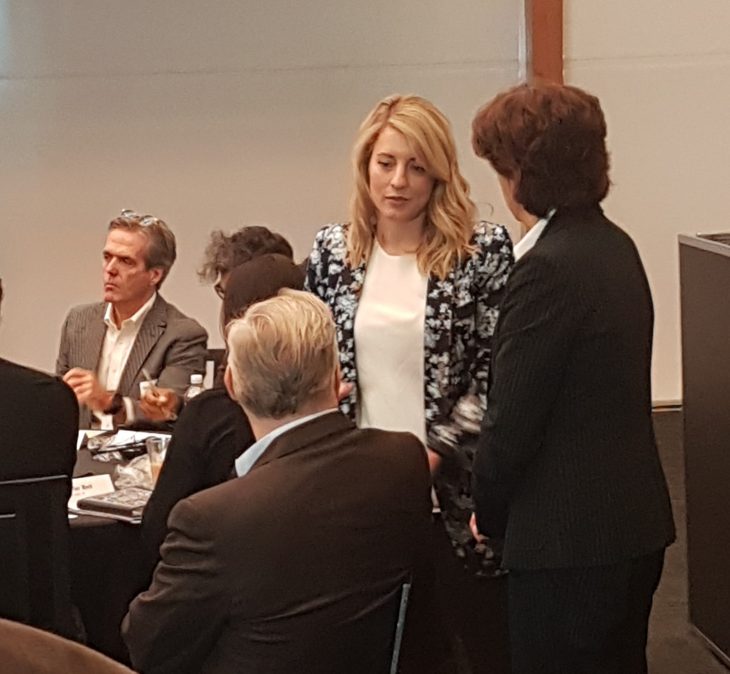
HALIFAX and TORONTO – Minister of Canadian Heritage Mélanie Joly hosted the second and third of six in-person discussions on Canada’s cultural and creative industries this week in Halifax on Tuesday and in Toronto Wednesday.
Dozens of professionals from the TV, radio, film, art and printed word industries gathered to talk about Canadian Content in a Digital World, as the federal government seeks input on how best to strengthen Canadian content creation, discovery and export in a digital world and to examine our current cultural policies and laws
Canadians are encouraged to join the conversation and take part in the discussions at any time through the Web portal and social media, using the hashtag #DigiCanCon, or to register for the remaining two Facebook Live events scheduled for October 28 and November 7. Additionally, stakeholders may lead in-person discussions in their communities using the consultation kit available online.
Input will be accepted through November 25, 2106.
During a short scrum with media Wednesday in Toronto, Minister Joly (pictured above at the Toronto event) was asked about how her vast consultation may potentially change the laws of the land (such as the Broadcasting Act) while the CRTC re-sets policy in certain areas based on existing rules, such as its recent decision on shifting the policies around qualifications for independent Canadian production funds so that productions with fewer Canadians can still qualify for cash.
“We have to understand that the overwhelming majority, 90% of the productions in Canada, are right on the eight out of 10 point system so it’s important people understand that… what I expect is when it comes to public funding, that public funding goes to Canadian content and Canadian artists and Canadian content creators,” she explained.
Later she made it clear she was referring directly to funds which draw on the taxpayer (which the private funds do not). “What I’m saying as the Minister of Canadian Heritage is that my expectations regarding the funding that we invest as a government, that this funding goes to Canadian artists and content creators.”
When asked about addressing the imbalances in the system, such as how Netflix, a foreign over-the-top video provider which now earns about $700 million/year in Canada but doesn’t even collect sales tax, let alone make any other contributions unlike the massive contribution our own companies make (and are forced to make), the Minister said, as she has already, that everything is on the table.
“I think that when it comes to talking about a Netflix tax, this is taking an issue and singling it out. The question is what is the role of digital platforms? What is their role in the ecosystem? How can we have a conversation with these digital platforms? Is it through legislation? Regulation? Is it through a contribution, which is the case for the private broadcasters? Is it… we do some form of enticements? These are all the scenarios people are bringing up and that we’re willing to look into.”


